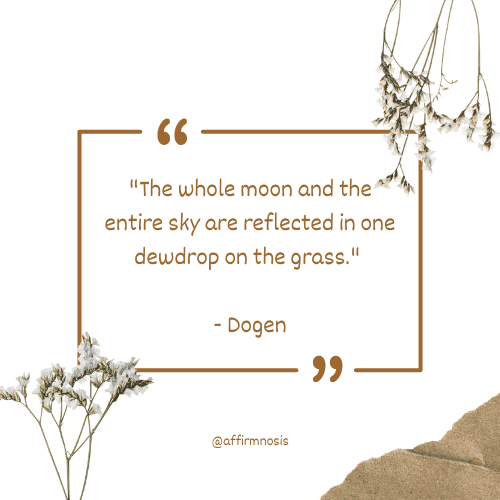In today’s fast-paced world, where we are constantly bombarded by stimuli and distractions, it is more important than ever to find moments of peace and stillness.
The Art of Stillness: An Introduction to Zen Meditation
Zen meditation is a practice that can help us achieve this state of mind by focusing on the present moment. In this article, we will explore the concept of zen meditation, its history and origins, as well as its importance in modern times.
What is Zen Meditation?
Zen meditation is a form of Buddhist meditation that emphasizes the practice of mindfulness and stillness. At its core, it involves cultivating awareness and attention to the present moment through focused breathing or concentration techniques. The aim of zen meditation is to develop inner calm, clarity, and insight into one’s own nature.
The Origins of Zen Meditation
Zen meditation has its roots in ancient India, where it was practiced as part of Buddhist teachings. It was then brought to China by Buddhist monks around 500 CE before spreading throughout East Asia over time. The word “zen” comes from the Chinese word “chan,” which means “meditation.” Today, zen meditation is closely associated with Japanese Buddhism and has become popular worldwide.
The Importance of Zen Meditation in Modern Times
With the rise of stress-related illnesses such as anxiety and depression in our modern society, the importance of finding ways to reduce stress has never been greater. Studies have shown that practicing zen meditation can lower cortisol levels (a hormone associated with stress) and improve overall mental well-being.
Additionally, regular practice can help cultivate qualities such as patience, focus, compassion for oneself and others – which are essential for leading a fulfilling life amidst daily challenges. Zen meditation offers a practical way to cultivate mindfulness in our daily lives while reducing stress levels.
It is a practice that has withstood the test of time, and its benefits extend beyond the individual to society as a whole. In the following sections, we will explore the principles and techniques of zen meditation in more detail, along with tips on how to overcome challenges and maintain a regular practice.
Understanding Zen Meditation
Zen meditation is a form of meditation that originated in China and was later introduced to Japan. It is based on the principle of mindfulness, which involves being aware and present in the current moment.
Definition and Principles of Zen Meditation
The aim of Zen meditation is to quiet the mind, and develop a deeper understanding of oneself and the world around us. The basic principle of Zen meditation involves sitting still, focusing on breathing, and observing thoughts as they come and go without judgment or attachment.
This helps to develop deep concentration, focus, and clarity of thought. The practice of Zen meditation also emphasizes non-attachment to thoughts or emotions.
Benefits of Practicing Zen Meditation
There are numerous benefits associated with practicing Zen meditation. One of the main benefits is stress reduction.
Regular practice can help reduce levels of cortisol (the stress hormone) in the body, leading to a sense of calmness and relaxation. Zen meditation also promotes mental clarity by improving focus, concentration, memory retention, and cognitive function.
Studies have shown that regular practice can lead to an increase in gray matter density in parts of the brain associated with attention regulation. In addition, practicing zen meditation can improve
- sleep quality
- boost immunity function by reducing inflammation markers such as cytokines levels related to depression
- anxiety
- stress
- GAD
- sleep disturbances
- fatigue
- PTSD-related symptoms within recurrent major depressive disorder patients.
- alleviate symptoms associated with depression & anxiety disorders.
- decrease blood pressure levels among people with hypertension over time.
- increase overall feelings happiness due to mindful presence & positive mood regulation.
Different Forms And Techniques Of Zen Meditation
There are various forms and techniques used in Zen meditation including;
Zazen (sitting-meditation)
Koan (unanswerable riddles or questions)
Chanting mantras (repeated phrases or sounds) and Walking meditation (slow, conscious walking).
Zazen is the most common form of Zen meditation and involves sitting on a cushion or chair, with a straight back, and focusing on the breath.
The aim is to observe thoughts as they come and go, without attaching any judgments or emotions. Koan practice involves solving riddles or paradoxical questions that have no logical answer.
This technique aims to help practitioners gain insight into their true nature. Chanting mantras involves repeating a phrase or sound over and over again to help quiet the mind.
It can be done alone or in a group. Walking meditation involves walking slowly and mindfully while paying attention to each step.
The aim is to develop mindfulness by bringing awareness to every moment of the walk. Overall, Zen meditation is a powerful tool for improving mental clarity, reducing stress levels, increasing happiness & positive mood regulation, developing focus & concentration of attention among other benefits listed above.

Preparing for Meditation
Creating a Suitable Environment for Meditation
Before starting your meditation practice, it is important to create an environment that promotes peace and relaxation. The space should be quiet, free from distractions, and have minimal visual stimuli.
Consider using soft lighting or candles to create a calm atmosphere. Choose a comfortable cushion or chair to sit on during the practice.
It is also helpful to clear any clutter in the space before meditating. A clean and organized environment can help reduce mental clutter and promote mental clarity.
Preparing the Mind and Body for Meditation
Before sitting down to meditate, take a few moments to prepare your mind and body. Find a comfortable seated position with your feet planted firmly on the ground.
Take several deep breaths in through the nose and out through the mouth. This can help slow down your heart rate and relax your muscles.
It can also be helpful to stretch or do some light yoga poses before meditating. This can loosen any tight muscles and improve circulation throughout the body.
Consider setting an intention or affirmation for your meditation practice. This can help focus your mind on a specific goal or intention for your practice.
Choosing the Right Time to Meditate
Choosing a consistent time of day to meditate can help establish a routine and make it easier to maintain a regular practice. Consider scheduling time for meditation in the morning before starting work or in the evening before bed. It is important to choose a time when you are least likely to be interrupted or distracted by outside factors such as work or family obligations.
If you find yourself struggling with maintaining consistency in your practice, consider joining a meditation group that meets regularly at set times during the week. This can provide accountability as well as additional support from other practitioners.
The Benefits of Preparing Before Meditation
Taking time to prepare before meditating can help create a deeper sense of relaxation and focus during the practice. By creating a suitable environment, preparing the mind and body, and choosing the right time to meditate, you can set yourself up for a successful meditation practice. Taking these steps can also help reduce any physical or mental distractions that may arise during meditation, allowing you to more easily achieve a state of deep relaxation and mental clarity.
Practicing Zen Meditation Techniques
Focusing on breathing techniques
One of the most fundamental techniques in Zen meditation is to focus on your breathing. This technique involves bringing all your attention to your breath and observing it as it moves in and out of your body. You can focus on the sensation of air moving in and out of your nose, or on the rise and fall of your chest.
The aim is to keep a steady rhythm and maintain a calm state of mind. While focusing on breathing, you may notice that thoughts or distractions arise in your mind.
Instead of getting carried away with these thoughts, acknowledge them without judgment and gently bring back your attention to your breath. Over time, this technique can help you train the mind to become more focused and calm.
Concentrating on a single point or object
Another technique for Zen meditation is concentration on a single point or object. This can include anything from staring at a candle flame, visualizing an image, or repeating a mantra silently.
The idea is to have something tangible to hold onto while you meditate. This technique helps bring clarity to the mind by reducing mental clutter.
When you concentrate on a single object, other thoughts are less likely to intrude into your awareness. In this way, concentration can be an effective way of calming the mind and developing deep levels of concentration.
Using guided imagery to create a peaceful state
Guided imagery is another technique that helps many practitioners achieve deep levels of relaxation during Zen meditation practice. This method involves visualizing peaceful images such as nature scenes or imagining yourself in calming situations like walking along a beach or resting under a tree.
Guided imagery helps take the focus away from distracting thoughts as well as fosters feelings of tranquility which can aid relaxation. This approach also provides room for creativity during meditation practice since there are no specific images that must be visualized.
Combining Techniques
Zen meditation techniques can be combined to create a customized practice that suits an individual’s needs. For instance, you may start with focusing on your breath for a few minutes to calm the mind and then transition into visualization or concentration for deeper levels of relaxation.
Practicing these techniques regularly helps train the mind to become more focused and alert while also cultivating a greater sense of inner peace and tranquility. With time, the benefits of Zen meditation will spill over into daily life, helping practitioners maintain a more balanced state of mind even in challenging situations.
Overcoming Challenges in Meditation
Dealing with Distractions During Practice: Staying Focused on the Present Moment
One of the main challenges of Zen meditation is dealing with distractions that arise during practice. Whether it’s an itch, a noise or a wandering mind, distractions can disrupt your focus and pull you out of the present moment.
However, it’s important to remember that these distractions are natural and inevitable, especially when you’re starting out. Here are some tips for dealing with them:
– Acknowledge the distraction: When you notice a distraction, don’t fight it or try to ignore it. Instead, acknowledge its presence and gently bring your attention back to your breath or your point of focus.
– Label the distraction: Sometimes labeling a distraction can help you let go of it. For example, if you hear a noise outside, you could label it as “sound” and then return your attention to your breath.
– Use mindfulness techniques: Cultivating mindfulness can help you become more aware of distractions as they arise. Try focusing on sounds or sensations without reacting to them or getting lost in thought.
Managing Physical Discomfort During Prolonged Sitting Periods: Finding Physical Comfort in Stillness
Another challenge of Zen meditation is managing physical discomfort that can arise from prolonged sitting periods. While some amount of discomfort is normal when sitting still for long periods, there are ways to minimize it:
– Find a comfortable posture: Experiment with different postures until you find one that is comfortable for your body. Some people prefer sitting cross-legged on the floor while others prefer sitting on a cushion or chair.
– Use props: Cushions or pillows can provide support for your hips and knees while blankets can keep you warm. – Take breaks if needed: If discomfort becomes overwhelming, take a short break by standing up and stretching before resuming practice.
Cultivating Patience and Perseverance in the Practice: Keeping a Steady Mind
Zen meditation is a practice that requires patience and perseverance. It’s not something that can be mastered overnight, but rather something that takes time and effort to develop. Here are some tips for cultivating these qualities:
– Set realistic expectations: Don’t expect to experience profound insights or immediate benefits from your meditation practice. Instead, focus on developing a regular habit of practice.
– Be consistent: Make meditation a daily habit, even if it’s just for a few minutes each day. Consistency is key in developing any new skill or habit.
– Don’t give up: There will be days when you don’t feel like meditating or when your mind feels especially restless. It’s important to not give up during these times and to keep practicing anyway.
Conclusion: Embracing the Challenges of Zen Meditation
While Zen meditation can offer many benefits, it also comes with its own set of challenges. By staying focused on the present moment, finding physical comfort in stillness, and cultivating patience and perseverance, you can overcome these challenges and reap the rewards of this ancient practice. Remember that there is no right or wrong way to meditate – what matters most is your willingness to embrace the challenges and commit to your personal journey towards self-discovery and mindfulness.
Maintaining a Regular Practice
Establishing a Consistent Routine for Practice
One of the keys to experiencing the benefits of Zen meditation is to establish a consistent routine for practice. This means setting aside a specific time each day or week to meditate, and then sticking to that schedule as closely as possible.
By making practice a regular part of your routine, you can help train your mind and body to relax more easily, which can improve your overall sense of well-being. To establish a consistent routine for practice, start by choosing a time of day when you are least likely to be distracted or interrupted.
This might be early in the morning before work or school, in the evening after dinner, or on weekends when you have more free time. Once you have chosen your preferred time slot, try to stick with it every day or at least as often as possible.
Incorporating Mindfulness into Daily Life
Another important aspect of maintaining a regular Zen meditation practice is incorporating mindfulness into daily life. Mindfulness involves paying attention to the present moment with curiosity and openness, without judgment or distraction.
By cultivating mindfulness throughout the day – whether through breath awareness exercises, mindful walking or simply paying closer attention to everyday activities – you can deepen your meditative practice and develop greater self-awareness. To incorporate mindfulness into daily life, start by focusing on simple tasks such as washing dishes or brushing your teeth.
Pay attention to each movement and sensation involved in these activities without getting lost in thoughts or distractions. As you become more comfortable with mindfulness practices throughout the day, try extending that awareness into more complex situations like conversations with friends and family members.
Seeking Guidance from Experienced Practitioners
Seeking guidance from experienced practitioners can be an invaluable way to maintain and deepen your Zen meditation practice over time. Whether through formal classes, workshops or one-on-one instruction, an experienced practitioner can help you refine your technique, troubleshoot any challenges you encounter along the way and offer encouragement and support as you continue on your meditative journey.
When seeking guidance from experienced practitioners, look for teachers who have a solid understanding of Zen meditation principles and techniques.
Ask about their training background, experience working with students and other relevant qualifications. It’s also important to find someone with whom you feel comfortable working – someone who is supportive, compassionate and respectful of your individual needs and goals.
Get Started Practicing Zen Meditation
If you are new to Zen meditation, we encourage you to give it a try. While it may take some time and patience to develop a regular practice, the rewards are well worth the effort. Whether you choose to attend a group meditation session or practice on your own, there is no right or wrong way to approach this practice.
All that matters is that you show up with an open mind and a willingness to learn. For those who already have an established practice, we encourage you to continue on your journey.
Remember that meditation is not about achieving perfection or reaching some kind of end goal. Rather, it is a process of continually deepening our awareness and connection with ourselves and the world around us.
Final Thoughts on the Transformative Power of Zen Meditation
In today’s fast-paced world, it can be easy to get caught up in the chaos and lose sight of what’s truly important. But by incorporating Zen meditation into our lives, we can find refuge from this constant busyness and rediscover our inner peace. Through regular practice, we begin to cultivate qualities like patience, compassion, and gratitude – qualities that extend far beyond our cushion or mat.
We become more mindful in all aspects of our lives – from how we interact with others to how we approach challenges at work or home. In short, practicing Zen meditation is a powerful tool for personal transformation and growth.
So whether you are just starting out or have been practicing for years, we encourage you to keep going. May your journey be filled with peace, joy, and a deep sense of connection with yourself and the world around you.
Quotes on meditation, mindfulness, and Zen philosophy that can be applied to the practice of Zen meditation.
- “Meditation is the dissolution of thoughts in eternal awareness or pure consciousness without objectification, knowing without thinking, merging finitude in infinity.” – Voltaire
- “Meditation is not a means to an end. It is both the means and the end.” – Jiddu Krishnamurti
- “Meditation is a way for nourishing and blossoming the divinity within you.” – Amit Ray
- “The mind is everything. What you think you become.” – Buddha
- “In the midst of movement and chaos, keep stillness inside of you.” – Deepak Chopra
- “Meditation is the tongue of the soul and the language of our spirit.” – Jeremy Taylor
- “Meditation is not to escape from society, but to come back to ourselves and see what is going on. Once there is seeing, there must be acting. With mindfulness, we know what to do and what not to do to help.” – Thich Nhat Hanh
- “Meditation is the ultimate mobile device; you can use it anywhere, anytime, unobtrusively.” – Sharon Salzberg
- “The thing about meditation is: You become more and more you.” – David Lynch
- “Zen is not some kind of excitement, but concentration on our usual everyday routine.” – Shunryu Suzuki
- “The practice of Zen mind is beginner’s mind. The innocence of the first inquiry—what am I?—is needed throughout Zen practice.” – Shunryu Suzuki
- “When you realize nothing is lacking, the whole world belongs to you.” – Lao Tzu
- “The quieter you become, the more you can hear.” – Ram Dass
- “The only Zen you find on the tops of mountains is the Zen you bring up there.” – Robert M. Pirsig
- “Zen is not attained by mirror-wiping meditation, but by self-forgetfulness in the existential present of life here and now. We do not “come”, we “are” Don’t strive to become, but be.” – Bruce Lee
- “To understand everything is to forgive everything.” – Buddha
- “The most important point is to accept yourself and stand on your two feet.” – Shunryu Suzuki
- “The whole moon and the entire sky are reflected in one dewdrop on the grass.” – Dogen
- “If you are unable to find the truth right where you are, where else do you expect to find it?” – Dogen
- “In Zen, actions speak louder than words. Doing is more important than knowing, and knowledge which cannot be translated into action is of little worth.” – Thich Thien-An
These quotes emphasize the transformative power of meditation, the importance of mindfulness, and the Zen philosophy of being present and accepting oneself.
20 affirmations that align with Zen philosophy:
- “I am at peace with the universe and accept its flow.”
- “In this moment, I am present and aware.”
- “I let go of all that does not serve my journey towards peace.”
- “I am not defined by my thoughts, but by the awareness that perceives them.”
- “I find beauty and joy in simplicity.”
- “I am a part of nature, and I respect its rhythms and cycles.”
- “I am in harmony with the world, as it is.”
- “I am not separate from the universe; I am a part of it.”
- “In every moment, I choose acceptance over judgment.”
- “Each breath I take is a testament to the gift of life.”
- “I embrace impermanence and change, knowing they are part of life’s natural flow.”
- “I cultivate compassion for myself and others.”
- “I am not driven by desire or aversion, but by understanding and love.”
- “I embrace the present moment with mindfulness and gratitude.”
- “I understand that suffering is a part of life, and I can learn and grow from it.”
- “I let go of expectations and allow life to unfold naturally.”
- “I am connected to all beings and treat them with kindness and respect.”
- “My happiness is not dependent on external circumstances, but on my internal state of being.”
- “I find tranquility in silence and stillness.”
- “Each moment is an opportunity for awakening and enlightenment.”




























































